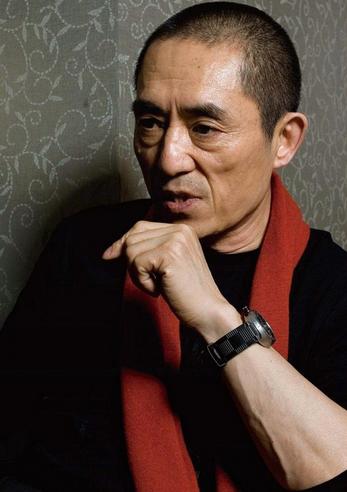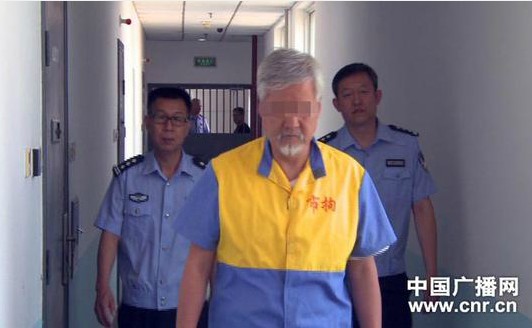China’s anti-graft watchdog on Monday announced it has set up three new offices following anti-corruption chief Wang Qishan’s call for efforts to innovate disciplinary inspections.
The offices are two discipline inspection divisions and a division tasked with supervising discipline inspection officers.
Wang, secretary of the Central Commission for Discipline Inspection (CCDI) of the Communist Party of China (CPC), on Saturday called for continued efforts to make inspection work the “Sword of Damocles” that hangs above those in power as a deterrent.
Wang said that a third group of inspectors will begin work soon.
Different from the previous two rounds, the third will carry out special inspections in the Ministry of Science and Technology, Shanghai-based Fudan University, and China National Cereals, Oils and Foodstuffs Corporation. Ten provincial-level areas will have regular inspections.
“Special inspections can target at some specific section of an institute,” said Gao Bo, deputy secretary with the research center of clean government of the Chinese Academy of Social Sciences.
With clear targets, inspectors can carry out anti-graft work more efficiently, Gao said.
Cai Zhiqiang, an associate professor with Party School of the CPC Central Committee, said inspectors will focus on areas which are prone to corruption.
He said that the three organizations to be inspected cover three important fields — government ministries, state-owned enterprises and educational institutes.
Since May, the CCDI has carried out two inspection rounds, which found evidence of corruption among officials, malpractice and harmful workstyles. Wrongdoers have been punished.
Though things have improved in the past year following the Party’s campaign to clean up four undesirable work styles — formalism, bureaucracy, hedonism and extravagance — the “Sword of Damocles” will always hang to prevent any relapse.
Cai said the third round of inspections will also reinvestigate potential corruption and malpractice found during the last two rounds.
Inspectors will report problems to relevant disciplinary watchdogs and punish wrongdoers in accordance with laws, Cai added.
“With a steadfast resolve to combat corruption, the CPC will continue to innovate the supervisory system and carry out inspections more flexibly, in order to forge the ‘Sword of Damocles’,” Cai said.
In January, President Xi Jinping said, “Do not let regulations become ‘paper tigers’ or ‘scarecrows'” and pledged more efforts to hold officials accountable for any wrongdoing.
According to a work report of the CCDI, discipline inspection agencies punished about 182,000 officials nationwide in 2013, 13.3 percent more than in 2012. Thirty-one high-profile officials were investigated by the CCDI and eight of them were handed over to prosecutors.
![]()
![Xinjiang vows to crack down on terrorism, as maintaining social stability is a priority for 2014. [photo / chinamil.com.cn] Xinjiang vows to crack down on terrorism, as maintaining social stability is a priority for 2014. [photo / chinamil.com.cn]](http://images.china.cn/attachement/jpg/site1007/20140117/8c89a590f56e1442c49602.jpg)
![China's moon rover 'Yutu' (Jade Rabbit) and the Chang'e-3 lander have just 'woken up' after a period of dormancy that lasted two weeks, or one lunar night, in a move designed to ride out harsh climactic conditions. [photo / Xinhua] China's moon rover 'Yutu' (Jade Rabbit) and the Chang'e-3 lander have just 'woken up' after a period of dormancy that lasted two weeks, or one lunar night, in a move designed to ride out harsh climactic conditions. [photo / Xinhua]](http://images.china.cn/attachement/jpg/site1007/20140113/8c89a590f56e143d81640a.jpg)
![Twenty-one Party and government officials were identified as being involved in the business in Boshe in the southern province's Lufeng City. [photo / cpd.com.cn] Twenty-one Party and government officials were identified as being involved in the business in Boshe in the southern province's Lufeng City. [photo / cpd.com.cn]](http://images.china.cn/attachement/jpg/site1007/20140106/8c89a590f56e1434566e02.jpg)
![The new one-child policy is expected to go into force in some provincial regions in the first quarter of 2014. [file photo] The new one-child policy is expected to go into force in some provincial regions in the first quarter of 2014. [file photo]](http://images.china.cn/attachement/jpg/site1007/20131224/8c89a590f56e1423522c06.jpg)


![The fire in a storehouse in Xiaowuji of Chaoyang District, Beijing, killed at least 12 people on Tuesday night. [Xinhua] The fire in a storehouse in Xiaowuji of Chaoyang District, Beijing, killed at least 12 people on Tuesday night. [Xinhua]](http://images.china.cn/attachement/jpg/site1007/20131120/001aa0ba3c6a13f656e205.jpg)
